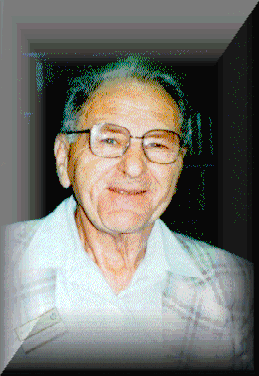![]()

![]() Aaron Antonovsky 1923-1994
Aaron Antonovsky 1923-1994
Aaron Antonovsky was born in the United States in 1923. After serving in the U.S. army in World II he obtained his Ph.D. in sociology from Yale University. Aaron immigrated to Israel in 1960, settled in Jerusalem and worked at the Israel Institute for Applied Social Science and in the Department of Social Medicine of the Hebrew University of Jerusalem-Hadassah.
By the end of the 196O's, Antonovsky role as a leading figure in medical sociology was established when he published several articles on social class differences in morbidity and mortality. His first major paper, published in 1967 and reprinted countless times throughout the world, was one of the first efforts to call attention to this risk factor. This paper is still widely cited in the literature, as research on social class remains a primary focus of public health.
In 1972, Aaron became one of the pioneers in the establishment of the medical school of the Ben-Gurion University of the Negev. As incumbent of the Kunen-Lunenfeld Chair in Medical Sociology, he had two central roles in the medical school. Being the first chairman of the committee, he designed the medical school's much copied admissions process. In addition, he established and headed the Unit of the Sociology of Health, which had leading role in shaping the school's bio-psycho-social and community orientation. During his twenty years in Beer Sheva Antonovsky taught countless of physicians and students how to look in new way at the medical profession, at disease and health, and at society as a whole.
During the years that Aaron's work in the medical school was bringing him international recognition in the medical education community he continued to develop as a theoretician and researcher. Already in the 196O's, his contribution to research on the stress process was acknowledged.
In the 1970's, he began to develop the salutoqenic model of health and illness which attained world-wide professional attention in his 1979 book, Health, Stress and Coping, and its sequel, Unraveling the Mystery of Health published in 1987. A breakthrough in research on the relationship between stress and illness, the salutoqenic model influenced the thinking of medical and behavioral scientists about the factors that form the basis of human health. His fundamental contribution was to point out the consequences of a pathological orientation toward sickness and disease, arguing persuasively that a far more useful view is obtained when researchers and clinicians instead focus on health and the forces that help people maintain effective functioning even in the presence of hazardous influences.
Aaron's extensive writing and lecturing in Israel and throughout the world have inspired many professionals in medicine and nursing, psychology, psychiatry, education and sociology to include salutogenic thinking in their own clinical work and research. The concept and measure of the sense of coherence, which is central to the salutogenic model and to the understanding of the relationship between the social system and the individual's well-being, has been used by nearly l50 researchers around the world; the measure has been translated into twenty languages.
Antonovsky published over 100 papers and wrote or edited 12 books. In his work, he combined creative conceptual thinking with sophisticated quantitative methodologies, which were expressed in an informal, charming and crystal clear writing ability. Recognition of his talents and achievements was expressed in 1993 when he was awarded an honorary doctorate from the Nordic School of Public Health.
Aaron retired from the medical school in 1992, but remained an active researcher end lecturer at meetings throughout the world. He became ill during a conference in Lisbon in May and passed away on July 7th, 1994.
![]() Three years after (in July 1997), also from Lisbon and as a tribute to his overwhelming contribution to a better understanding of humans beings, this Home Page in the Internet was first activated by L.A. Saboga Nunes, - an attentive listener of his presentation in Lisbon. As a meeting point to these researchers that were somewhere and somehow influenced by the salutogenic model we thus pay tribute to Aaron's memory.
Three years after (in July 1997), also from Lisbon and as a tribute to his overwhelming contribution to a better understanding of humans beings, this Home Page in the Internet was first activated by L.A. Saboga Nunes, - an attentive listener of his presentation in Lisbon. As a meeting point to these researchers that were somewhere and somehow influenced by the salutogenic model we thus pay tribute to Aaron's memory.
![]()
ANTONOVSKY, A. Unraveling The Mystery of Health - How People Manage Stress and Stay Well, London: Jossey-Bass Publishers, 1988
ANTONOVSKY, A. Health, Stress, and Coping, London: Jossey-Bass Publishers, 1985
ANTONOVSKY, A. "The Sense of Coherence as a Determinant of Health". In J.D. Matarazzo (Ed) Behavioral Health: A Handbook of Health Enhancement and Disease Prevention. New York: John Wilet & Sons, 1984
ANTONOVSKY, A. "Conceptual and Methodological Problems in the Study of Resistence Resources and Stressfull Life Events. In B. Dohrenwend & B. Dohrenwend (Eds.) Life Events: Their Nature and Effects (pp. 245-258). New York: Wiley, 1974
ANTONOVSKY, A. "The Sctructural Sources of Salutogenic Strengths" in C.L. Cooper & R. Payne (Eds), Individual Differences: Personallity and Stress (pp.67-104) New York: Wiley, 1991
ANTONOVSKY, A. "Complexity, Conflit, Chaos, Coherence, Coercion and Civility", in Social Science & Medicine, 37, 969-974, 1993
ANTONOVSKY, A. & SOURANI, T., "Family Sense of Coherence and Family Adaptation", Journal of Marriage and the Family, 50, 79-92.
![]()
![]()